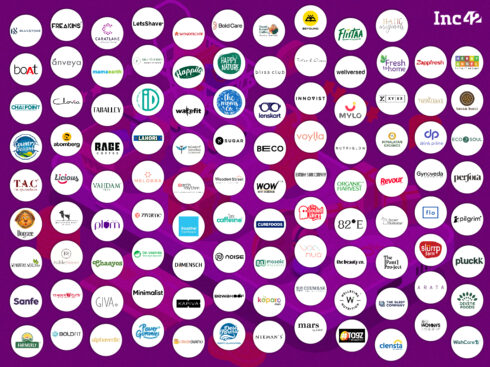
SUMMARY
According to KPMG India, the country already has more than 800 D2C brands. The D2C market is currently valued at $44.6 Bn, but it is expected to grow to $302 Bn by FY 2030
Despite accounting for a minor portion of India's ecommerce sector, social commerce is expected to reach $70 Bn in GMV by 2030 according to a study conducted by Sequoia India and Bain & Company
Social commerce offers D2C businesses a direct route to customers, giving them full control over the experience that is created for them
According to KPMG India, the country already has more than 800 D2C brands. The D2C market is currently valued at $44.6 Bn, but it is expected to grow to $302 Bn by FY 2030.
In recent years, several D2C businesses, such as mCaffeine, Khadi Essentials, Arata, WOW Skin Science, Plum Goodness, and others, have occupied niche markets and built strong brand relationships with customers. D2C startups such as Mamaearth, Sugar, and others are fiercely competing with large FMCG brands such as Himalaya, Hindustan Unilever, and a slew of others.
The growing influence of digital information on consumers is undeniable. Customers nowadays have access to a wealth of information before making a purchase decision. Furthermore, the rise of social commerce has enormous potential to influence people’s decisions.
With 852 Mn people using smartphones to access the internet at the lowest global data rates, developing an omnichannel presence has proven to be a successful strategy. India has a relatively large population of social media users. This creates an ideal environment for social commerce to thrive.
Social commerce is the direct purchase or sale of goods or services at touchpoints where consumers have access to content. This model helps customers discover new brands by requiring them to complete the entire purchasing process within their preferred applications. Despite accounting for a minor portion of India’s ecommerce sector, social commerce is expected to reach $70 Bn in GMV by 2030, according to a study conducted by Sequoia India and Bain & Company.
A Winning Combination
Without the use of physical stores or third-party ecommerce partnerships, social commerce offers D2C businesses a direct route to customers, giving them full control over the experience that is created for them. These businesses benefit from knowing where their customers spend the majority of their online time.
The Future of Ecommerce
The customer journey is made easier by social media stores, which reduce friction from product discovery to purchase. Examine it, click on it, and buy it. At the end of the day, each mouse click represents an opportunity for a potential customer to change their mind.
Customers may become disinterested if they are required to click from their advertisement to the brand’s website, add the items to their shopping cart, and then enter their credit card information.
Socialising While Shopping
Buying on social media is far more interactive than traditional online shopping sprees.
Customers can easily seek advice from friends before making purchases, show off their new high-tops, leave comments, read comments, and interact with other customers. Social commerce is the next best thing for those who miss the social aspects of a day at the mall.
Opportunity To Filter Consumers
Since social media provides a wealth of customer information, businesses can tailor and target their advertising exclusively to consumers.
Social commerce enables D2C companies to put specific, ready-to-buy items in front of the precise customers who would love them in a way that traditional ecommerce and marketing cannot.
Increase In Reviews & Recommendations
If a D2C brand is new to online sales, its social media profiles are an excellent place to start building that critical social proof. Customers who purchase from an online platform will not be able to test or try on the brand’s products.
They may use reviews to help them make an educated purchase decision. Using social media to manage end-to-end customer experience creates a positive feedback loop that boosts the brand’s revenue by bringing new followers into the company’s funnel.
Promotes Effective Interactions
One of the most significant advantages of social commerce is increased participation. People are encouraged to connect with businesses through social commerce through two-way communication.
This allows customers to communicate with the company’s business as well as use social media as an efficient avenue for customer service where issues can be resolved. Customers who return to a business are more likely to recommend it.
With their competitive prices and online presence, D2C brands are supplying the underserved market in India’s Tier II, III, and IV towns and cities. Brick-and-mortar stores were unable to meet the hopes of these towns’ youth for a better way of life.
As D2C firms worked to establish an omnichannel presence, social commerce grew, and today, they are forging a distinct combination that offers specialised and personalised products to young consumers. Social commerce helps consumers find new brands by enticing customers to complete the entire purchase process within their preferred applications.


























